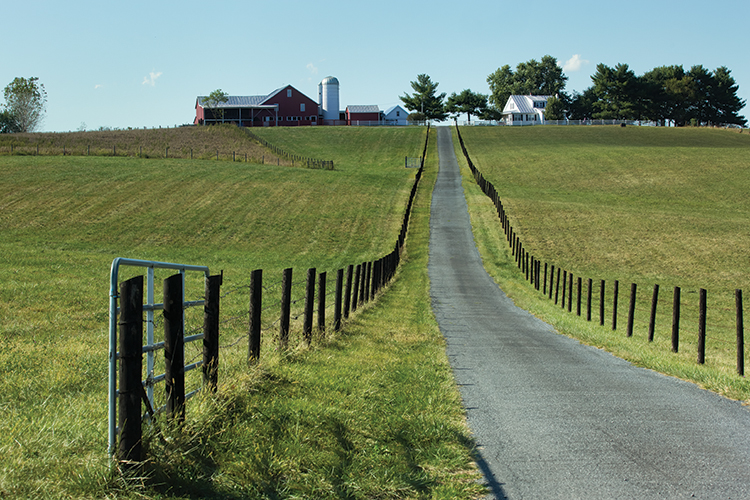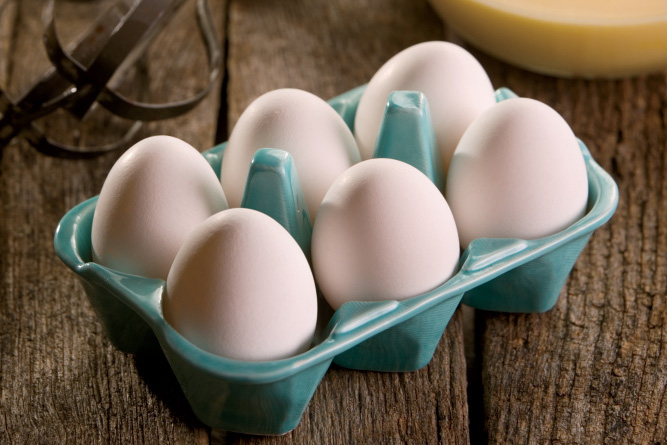Home > Virginia > Virginia Farm to Table > What’s Old is New Again in Virginia
What’s Old is New Again in Virginia
In partnership with: Virginia Department of Agriculture and Consumer Services
 As one of America’s original colonies, history plays an extremely important role in Virginia’s identity and culture. That same historical importance applies to its agriculture industry, too.
As one of America’s original colonies, history plays an extremely important role in Virginia’s identity and culture. That same historical importance applies to its agriculture industry, too.
As the largest private industry in the state, agriculture contributes $52 billion annually and provides nearly 311,000 jobs. Taken together, agriculture and forestry contribute $70 billion and provide nearly 415,000 jobs.
Dating back to the 17th century, some of Virginia’s original commodities are still important today, including peanuts, poultry, cattle and tobacco – one of the first exports from the colonies. Early settlers took advantage of Virginia’s mild climate and geography, learning how to grow crops from Native Americans. Both George Washington and Thomas Jefferson planted the roots of a strong ag industry for Virginia, and their efforts still influence farmers today.
Some of this historic influence can be seen in facets like farmers’ markets across the state, such as the Old Town Farmers’ Market in Alexandria. It can also be seen in centuries-old farms, passed down through generations, as well as heirloom vegetables and heritage breed meats, once again popular.
Although tradition is important throughout Virginia agriculture, the industry just as readily embraces change and innovation. For example, livestock farmers are implementing conservation practices, working to better protect the land. Plus, they are making sure animals receive care using the latest innovations, such as providing milking cows waterbeds for comfort. At Virginia Tech, researchers are working on cutting-edge wheat breeding innovations, helping growers improve their yields.
The state is also investing in helping farmers diversify through agritourism activities and educating the next generation to keep Virginia’s industry strong.
This respect for tradition and history, as well as progression and innovation, helps Virginia agriculture remain a stronghold for the state.
 Out of Their Shell
Out of Their Shell
The incredible, edible egg is not only delicious, nutritious and versatile, but it also contributes more than $100 million to the state economy each year.
Cash receipts for Virginia eggs totaled close to $114 million in 2014, the most recent data available, and rank 11th among the state’s top agricultural commodities. The eggs came from more than 1.2 million laying hens throughout the state.
According to the National Agricultural Statistics Service, the Commonwealth produces more than 60 million eggs per month. Egg productivity has increased over the past five years, up by 17 million from 2010 to 2015, when layers produced a whopping 752 million eggs. Now that’s a lot of omelets!
Growing Strong
Virginia is working to revive a once thriving commercial crop – industrial hemp. The product has many industrial uses, including making textiles, building materials and feeding livestock.
In 2016, the Virginia General Assembly passed a bill authorizing hemp cultivation as part of research projects approved and licensed by the Virginia Department of Agriculture and Consumer Services. While private commercial production of industrial hemp is still not permitted by federal or state law, the current university-sponsored research projects are providing valuable information in anticipation of further legislative changes which could allow for commercial production.
Virginia is not unfamiliar to this commodity, which has a historical significance dating back to Colonial times. Hemp’s strong fibers were used to make durable ropes and cloth, which were important for use as lines and sails on ships. Farmers grew hemp throughout the colonies, with Virginians and Marylanders growing the most in the 18th century.
There is already a large domestic market for the crop, and the national market for hemp is estimated at more than $600 million per year. Virginia is one step closer to securing an industry for this potentially lucrative crop.
The Wine is Fine in Virginia
Raise a glass to the unique, varied and refreshing Virginia wine industry.
Wineries abound in Virginia, as each of the state’s different regions offer ideal conditions for growing specific types of wine grapes.
Visit the Blue Ridge region and you’ll find both red and white varieties including Pinot Grigio, Traminette, Merlot, Pinot Noir and more. In southern Virginia, you can enjoy Syrah, Vidal Blanc and others made from area-native fruits. Those represent a small sample of Virginia’s offerings, and with more than 250 wineries across the state, you’re bound to find something that will please any palate.
The industry is an important part of overall agriculture, too, and Virginia ranks fifth in the nation for wine grape production. In 2014, grapes ranked as No. 18 in the top 20 commodities for Virginia, and contributed $15 million in cash receipts. Learn more at virginiawine.org.




Linked up at Showcase Your Talent Thursday
like your recipes